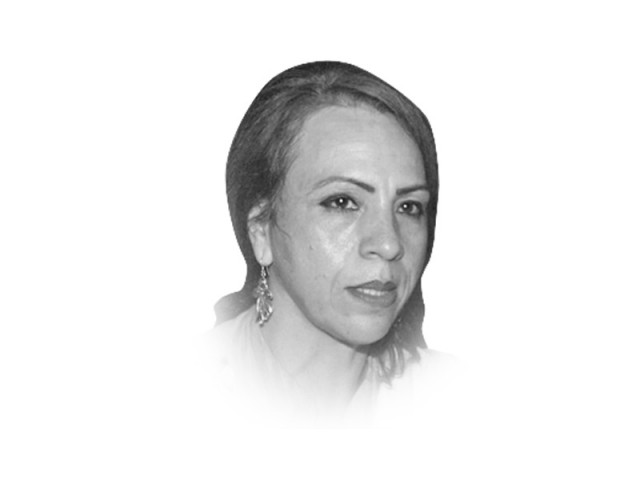What human rights?
In Pakistan, the biggest issue is that the state, guarantor of rights, is itself the biggest violator of human rights.

However, as this day is celebrated, one finds that the UDHR is being violated all over the world, so much so that a mockery is made of the Declaration. While we saw the Arab Spring and the Wall Street protests, the issue is that those who are protesting are unable to claim their rights.
The tragedy of our times is that three billion people out of the total world population of seven billion, are living in absolute poverty. And more than a billion people in the developing world have no adequate access to water while a whopping 2.5 billion lack access to basic sanitation.
In this highly technologically advanced era of development, interstate and intra-state disparities are constantly on the rise. One heartbreaking fact is that if we decide to spend less than one per cent of what the world is spending every year on weapons, we can put every child in school.
The current state of human rights in Pakistan is such that one may ask, “What human rights?” There is a general failure of governance and a breakdown of law and order in the country, and both these impinge greatly on the fundamental rights of citizens.
In Pakistan, the biggest issue is that the one institution which is supposed to safeguard the rights of citizens, i.e. the state, is itself the biggest violator of human rights. All state institutions especially the police, the Rangers and the security agencies are all involved in this. People are frequently picked up by security agencies in Balochistan and from other parts of the country without being given a chance to take judicial recourse. The police routinely tortures prisoners and is involved in corruption and abetting criminals. Moreover, the state sanctions or, at the very least, looks the other way when non-state actors such as feudal or tribal chiefs, militant groups and political mafias use violence. The absence of the state as a benevolent influence in people’s lives has made them extremely vulnerable by leaving them at the mercy of local power brokers. While all citizens suffer from this state of affairs, those who suffer the most are women, religious minorities, the transgendered, bonded labourers and those displaced by natural and human-made disasters.
Growing intolerance and extremism in the country, along with the repressive nature of the state puts those who dare to speak up and demand change at much higher risk. Pakistan has already been declared as being among the most dangerous places in the world for a woman or a journalist.
The biggest challenge faced by the citizenry today is how to make the state adhere to its national and international commitments to human rights. In the given context, the only way forward seems to be for the downtrodden majority to establish people’s rule. It is pointless to expect anything from the bourgeoisie state which is there essentially to defend and protect the interests of the capitalist class, which, in turn, grows by feeding on the social and economic exploitation of ordinary Pakistanis.
Published in The Express Tribune, December 11th, 2011.
















COMMENTS
Comments are moderated and generally will be posted if they are on-topic and not abusive.
For more information, please see our Comments FAQ